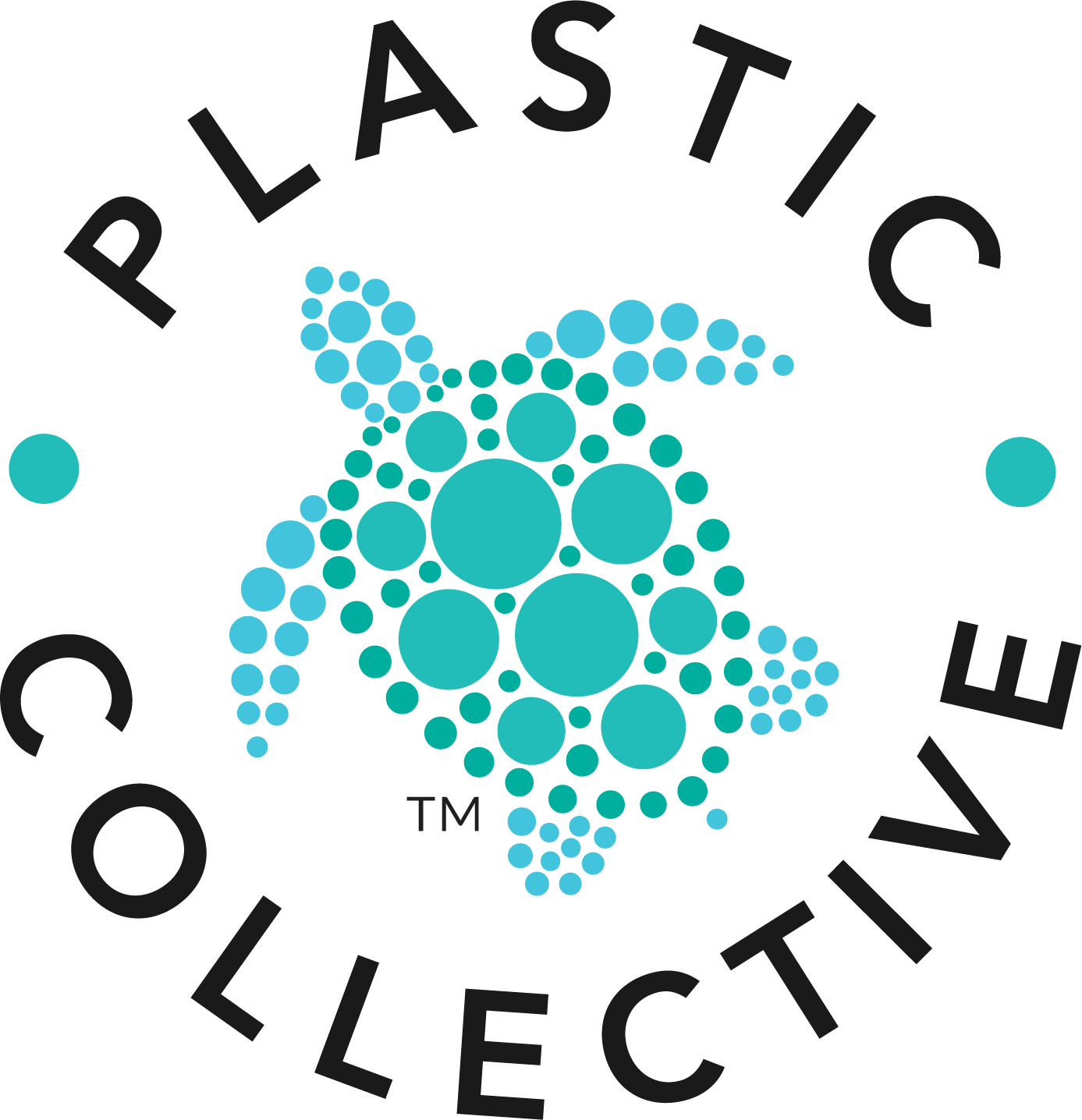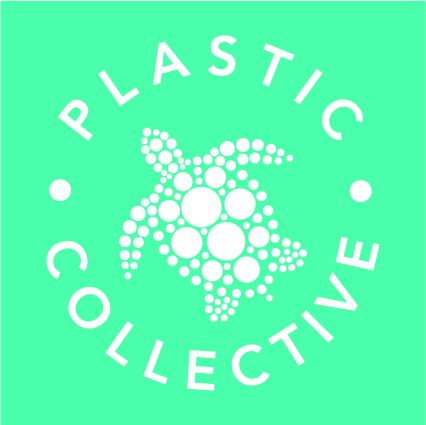Trip to Northern Territory – Rubbish on the shore
In early May, the Plastic Collective Oz team (Louise and myself) were invited to ‘Rubbish on the Shore, a Think Tank on Country’, to contribute to discussions on ghost net and marine debris pollution in northern Australia. We undertook our journey to Northeast Arnhem Land, Northern Territory to participate in the Ghostnet Initiative workshop alongside Indigenous Ranger groups, and other key government, community and industry stakeholders. The program was organised by Agency Projects in partnership with Gumatj Aboriginal Corporation, Australian Government Ghostnet Taskforce, Parks Australia, National Gallery of Victoria, Indigenous Visual Arts Industry Support and Sea Shepherd.
This was my first trip to the Northern Territory and I was thrilled about the whole journey which took over two days to reach the destination, travelling 5 towns, 2 flights and finally a bus to the Gulkula Festival site, where the famous Garma Festival of Traditional Arts, which was established by Yothu Yindi Foundation is held annually.
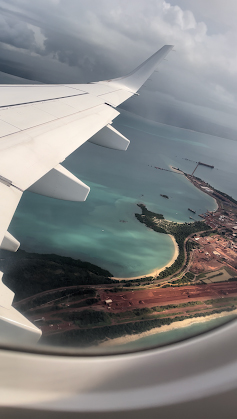
The trip was exhilarating, the blue sky, red earth and rugged landscape was transcendent. Despite the fog and rain, the weather was still pleasant, though a bit humid.
Arnhem Land is a beautiful country with its serene landscape. The moment I landed there, I was overwhelmed with lots of emotions as it reminded me of my home country, Nepal. Similar landscape and red earth brought back memories of my childhood and my native land.
As we reached Gove Airport, we were welcomed by the Agency project team and we were directed to the event location. It was only a 10 minutes ride from the Gove airport to reach Gulkula, with unique architectural structures and numerous camping stations – this was also my first camping experience in Australia which added to my excitement.
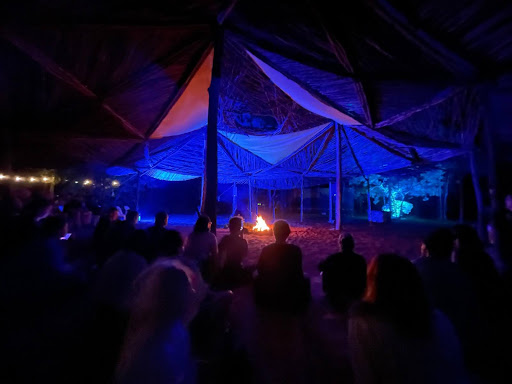
After a warm introduction from the Gumatj clan and the organisers the Yolnju clan performed their welcoming ceremony showcasing their rich cultural dancing and rituals, which was very entrancing for everyone.
People from various organisations started mingling and sharing their work with each other, this was a really good opportunity for me to learn about the vast array of projects represented, which included over 10 Ghost Net Initiative funded projects from all over Northern Australia From design and architecture sectors, educational institutions, material scientists, marine biologists and data analysts who were actively engaged in the ocean cleanup sector.
Plastic Collective’s vision and dedication in improving the environment by educating and supporting vulnerable and remote communities in transforming waste plastic into a resource is truly motivational and inspiring. The Plastic Collective project – Hunter Gatherer Networks, works with multiple remote Indigenous art communities, with a particular focus on empowering women to establish microenterprise opportunities in creative ocean recycled arts with essential tools, equipment and a digital online marketplace dedicated to Ghost Gear and Marine Debris Artworks/ Supplies.
We also got a chance to meet First Nations rangers from different areas including the local Dhimurru and Yirralka Rangers, as well as crew from Tiwi Islands, Numbulwar, Mapoon, Napranum, Pormpuraaw, Northern Peninsula Area (NPA Cape York), Kowanyama, Aurukun and from WA (the Nyangumarta Rangers).
The event went over 3 days, with regular sessions from different groups explaining their projects, experiences and ideas of addressing the marine debris issues, which many remote northern Australia coastal areas can reach up to 3 tonnes per kilometre . It was very interesting to hear their shared insights regarding the challenges they faced and achievements they have come across.
Coming from a landlocked country like Nepal, I had no prior understanding of how ocean cleanups are conducted. This experience provided me with new perspectives and made me realise the significant impact marine debris has on their lives and our shared environment, as well as the enormous and extensive effort and resources required to manage them.
Indigenous Land and Sea Ranger groups are expanding across northern Australia, with over 200 groups in Qld alone. This is due to the success of implementing successful land and sea management practices, such as feral animal control, endangered species recovery, marine debris cleanup events, fire-stick management, biosecurity and other ecologically important projects. The combination of traditional knowledge with modern technology – a powerful method which Yolngu elders called 2-way (or both ways) learning enables traditional knowledge and modern technology to work together.
All of the coastal Ranger groups conduct annual marine debris cleanups, often linked to significant marine turtle nesting sites. Volunteer organisations, including Sea Shepherd, often support the Ranger programs with dedicated volunteers in these northern regions. During the 3 day event, the Rangers shared details of the problems they faced collecting and removing the marine debris – including lack of people to remove the volumes and access to the remote coastal regions.
Similarly, the management of landfills is a serious concern for all Indigenous groups, as burying mostly foreign plastic waste on Country is not a sustainable solution. . This event also gave an opportunity for all to explore and deliberate the whole process of debris recovery, disposal and recycling management.
Other design, engineering and creative organisations had displays and workshops showcasing solutions in the reuse, repurposing and recycling of materials from marine debris.
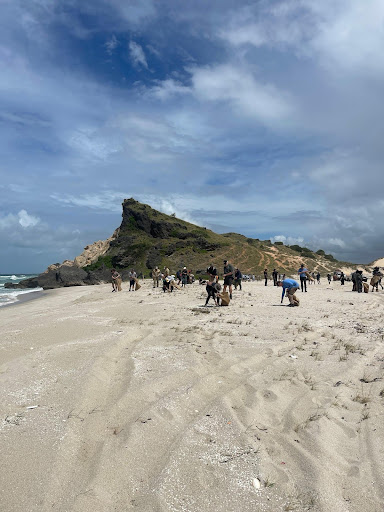
In addition to exploring different projects, I was drawn to the Yolngu people, Rangers and art groups.. It was truly a great opportunity to engage and connect with a diverse group of people, learning and being inspired by their culture, values, morals and ethics.
Agency project has also organised for us to visit a nearby beach and conduct a cleanup, collecting plastic marine debris and ghost net material rubbish washed ashore from the northern seas. The experience highlighted the extremely tough job Rangers and volunteers have, working in intense heat on remote coastal areas where vehicle access requires 4WD’s, beach buggies and/ or barge access, making the transportation logistics very challenging. Despite this, a typical cleanup event over 2 weeks can recover up to 10 tonnes of marine debris. .
During the Rubbish on the Shoreline event, Plastic Collective ran a hands-on workshop in repurposing / recycling ghost nets and marine debris into useful products. Sitting down together with women and men artists to make products that are useful in their community (a number of fish / crab bags were made!) was a perfect forum to engage and test out some tools, equipment and ideas with various participants.
We provided a space for people to join and see how we can support rangers and artists through hardware support, a software application (an e-commerce platform for selling their arts and products), and various training programs. A number of women showed a strong desire to do weaving and needle work to create valuable products from marine debris, demonstrating their methods of weaving, making dilly bags, bottle holders and beautiful designs of small earrings during the workshop.
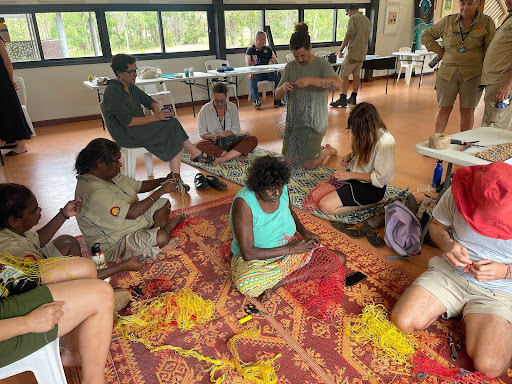
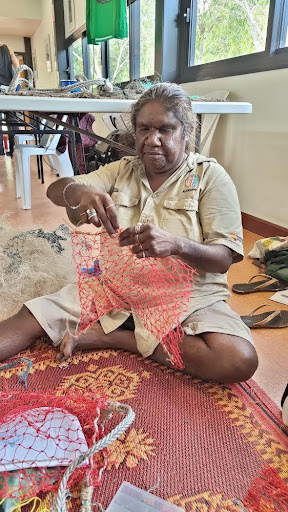
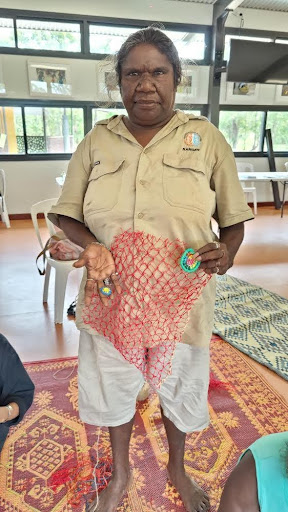
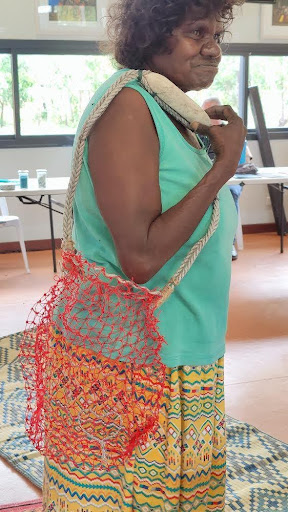
The things I learnt about the trip to this beautiful and wild country through the eyes of the Rangers, artists and women included;
1. The extreme challenges with remote access and transportation costs, which they face dealing with marine debris washing in from another country that impacts their pristine environment and wildlife
2. Everyone has genuine concerns and want to find lasting solutions to prevent and manage the marine debris beyond landfills
3. ‘All-hands-on-deck’ approach to collaboration can create opportunities and platforms to enhance engagement, education and empowerment to generate income for a clean sustainable environment.
4. Women, youth and artists are undervalued as key players in the solution, while Rangers are predominantly male (some women), there is an opportunity to engage more women and young people in the creative arts sector due to their existing traditional knowledge and skills – combined with modern technology (2 way learning).
5. The sale of products in remote communities is extremely difficult, as our dedicated Hunter Gatherer Networks App can provide an opportunity to sell marine debris ‘resources’ and ‘products’ providing an opportunity for artists / women to work from home and establish micro enterprise opportunities.
This event was an excellent opportunity to learn and create relevant connections with people dedicated to addressing the marine debris / ghost gear problem in Australia. We believe everyone has returned with meaningful connections with each other and has acquired key information that they need to design their project. For us, we are now working with an additional 10+ remote communities to transform waste plastic into resources with our Hunter Gatherer project. In the next few months, our team will be attending the Cairns Indigenous Art Fair (CIAF) between 25th -28th July, as well as the Darwin Aboriginal Arts Fair (DAAF) on 9th-11th August, with marine debris tools kits and App marketplace – where we will be reconnecting with creative remote communities dealing with marine debris.
We are deeply grateful to the Agency (the organising project team), the Gumatj clan, and the Yolnju people for giving us the opportunity to engage in cross-cultural knowledge exchange and collaborative discussions designing solutions for marine debris and ghost gear. The community, especially the women, who warmly welcomed us, impressed upon us their deep wisdom and knowledge. Being there, I realised how much we can do and individuals working together to help keep the sea country clean, starting with our own awareness and actions.
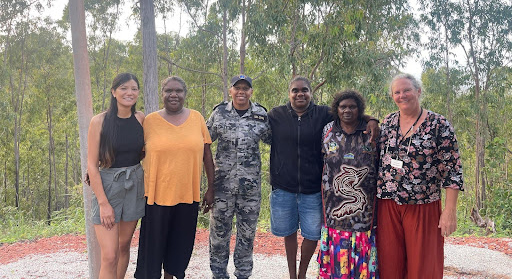
L-R: Rachana (PC), Roberta (WA), Vanessa (NT), Valleria (WA), Virginia (NT), Louise (PC)
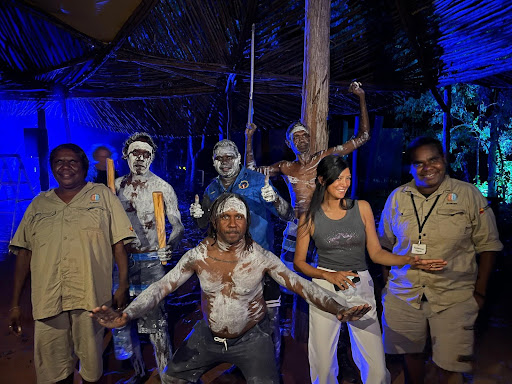
I appreciated the phrase shared by one of the rangers: “A healthy country means healthy people.” This statement beautifully emphasises our collective responsibility to keep our environment, our mother Earth, clean. Only by doing so can we ensure a healthy and fruitful life for all living beings in our country. The night ended with entertainment activities, and the next day we travelled back home with a profound sense of joy and thankfulness for the exhilarating journey.
